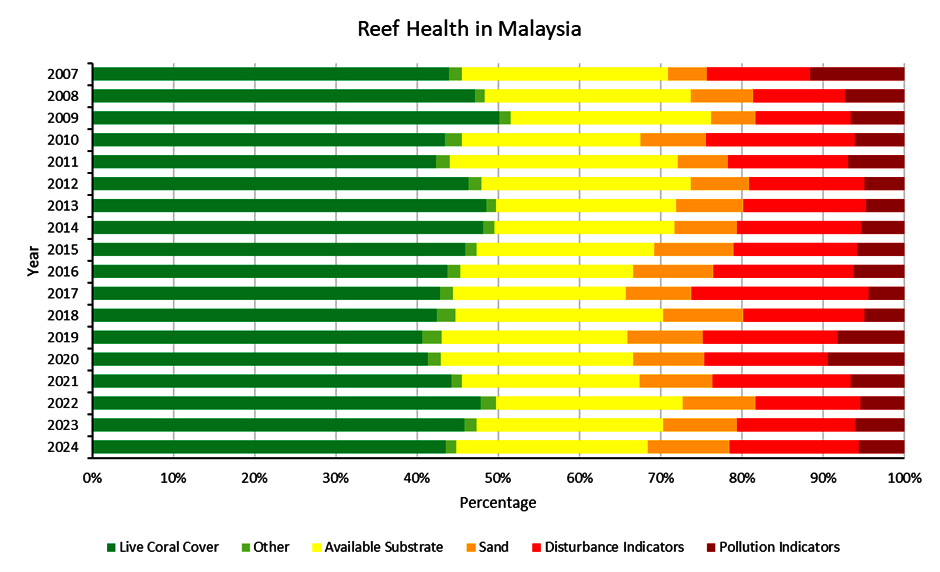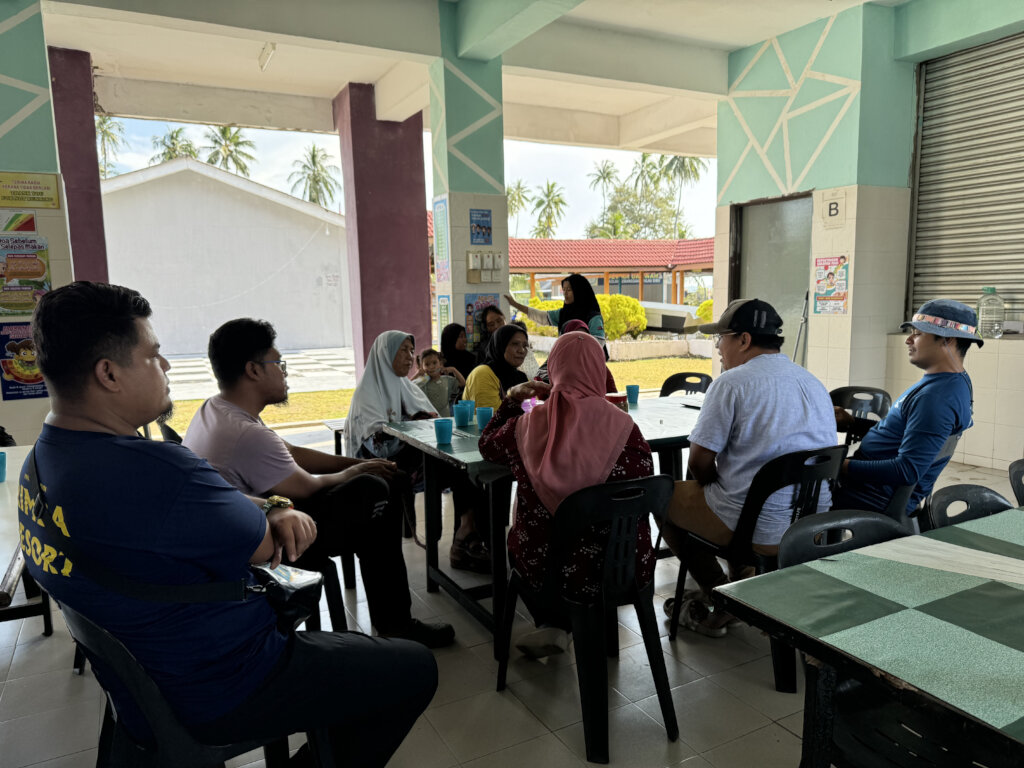By Cynthia | Education and Public Awareness Officer
Reef Check Malaysia (RCM) recently released our 2024 Annual Survey Report, which details the health and status of coral reefs across Malaysia for 2024. RCM, together with volunteer EcoDivers conduct reef surveys using the Reef Check method at more than 300 sites across Malaysia, looking at key indicators of coral reef health in those areas.
A total of 315 sites were surveyed in 2024. The surveys are a continuation of a successful National Reef Check Survey Programme that has now run for 18 years. Survey sites, mainly near islands, include both established Marine Protected Areas (MPAs) and non-protected areas.
From 2023 to 2024, there was a slight decline in the percentage of Live Coral Cover (LCC), which is one of the key reef health indicators. This measures the percentage of the reef itself that is live coral - both hard coral and soft coral. LCC declined from 45.9% in 2023 to 44.7% in 2024, continuing a trend that originates from 2022. However, this percentage still falls within the "Fair" category of LCC. This deterioration can be attributed to a number of factors, key among which are unsustainable tourism, pollution and fishing activities. An additional impact this year was the 4th Global Coral Bleaching Event, which affected coral reefs around the world.
The data suggest that the health of Malaysia’s coral reefs is deteriorating. Other key findings from the surveys are:
What can we do? RCM has been working towards building resilience: the ability of an ecosystem to either “shrug off” an external threat or impact (such as bleaching) or to recover from it.
We do this by addressing the local impacts that are affecting them. For example, we reduce physical damage to reefs by organising training courses for boat operators as well training programmes such as Green Fins and Eco-Friendly Snorkel Guiding for dive operators and snorkel guides. We also work on reducing impacts of coastal development by rigorously enforces planning controls in sensitive islands, while also protecting fish populations by managing fishing effort to ensure herbivore populations are maintained.
RCM has also been advocating for a greater role of local stakeholders (including communities, businesses, state and municipal government) through a “top-down” approach in marine resource management. We also recognise the need for several government agencies with different responsibilities to collaborate and integrate coral reef management between them.
Read more about our take on the results of the annual report here (Part 1 and Part 2).
By Cynthia | Education and Public Awareness Officer
By Cynthia | Education and Public Awareness Officer
Project reports on GlobalGiving are posted directly to globalgiving.org by Project Leaders as they are completed, generally every 3-4 months. To protect the integrity of these documents, GlobalGiving does not alter them; therefore you may find some language or formatting issues.
If you donate to this project or have donated to this project, you can receive an email when this project posts a report. You can also subscribe for reports without donating.
Support this important cause by creating a personalized fundraising page.
Start a Fundraiser
